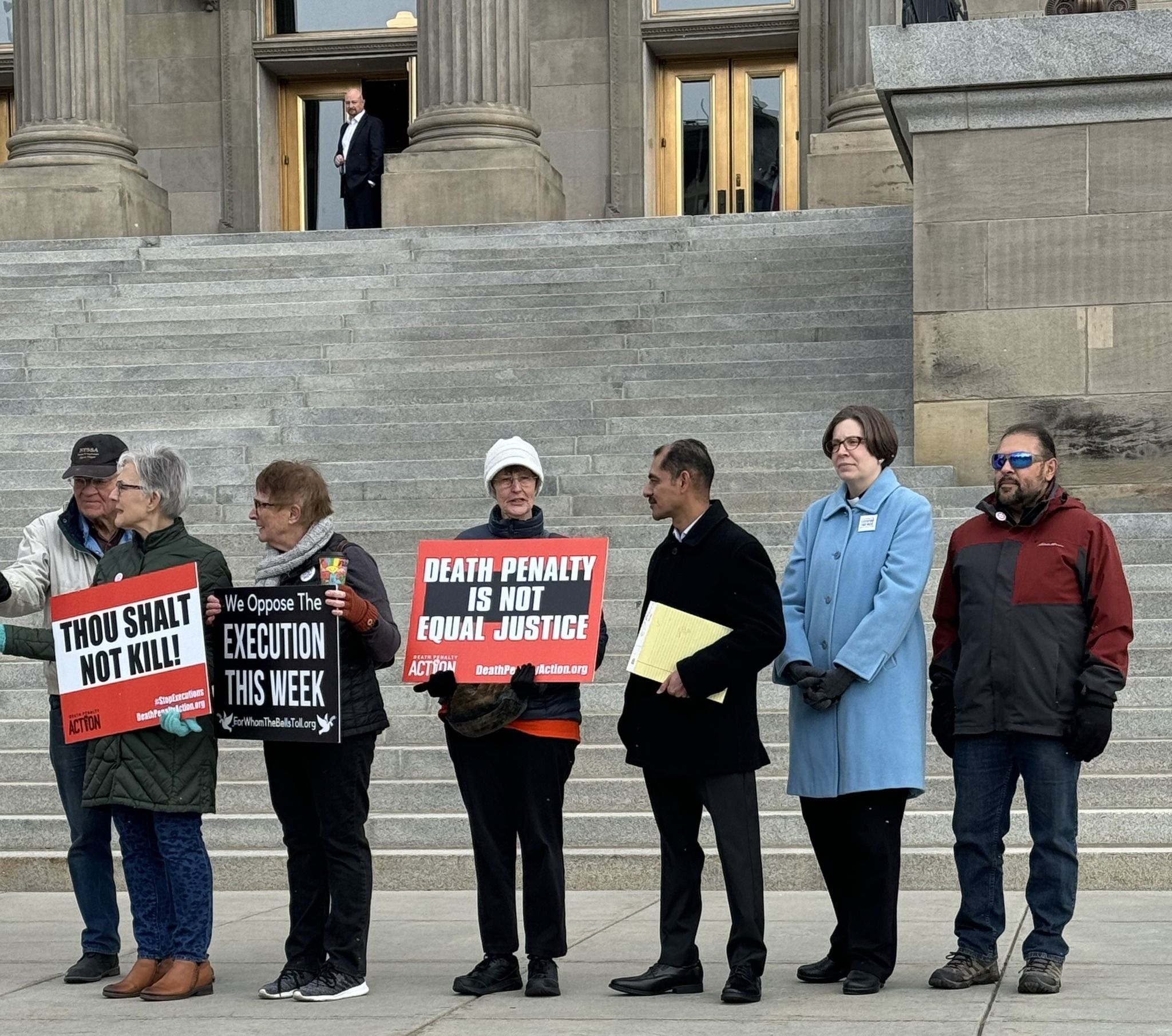My family still resides in and around Decatur, Alabama. If you search Decatur, Alabama, you will learn that before the conflict in Palestine-Israel escalated to all-out war, Steve Perkins, a 39-year-old African-American man, was shot by several Decatur Police officers. Steve’s death on the front lawn of his home invoked outrage across the city and has sparked protests, rallies, memorials, and other calls for justice and peace. I did not know Steve, but I know Steve’s plight. I know what it means to be confronted with violence and live with the threat of death every time I leave my home. With Steve’s death, we add to the litany of unarmed Black men who died at the hands of state-sanctioned violence. I wonder if even being home is as safe as I tell myself it should be.
My heart aches for Steve’s family. It breaks for families in Israel and Gaza already suffering injury and loss. And it will break again for the Palestinians, Israelis and others who will be caught in the crossfire as war rages across the area. With people being held captive by colonialist borders and nationalist policies, there is limited personal and communal agency. With powers from far away dictating strategies and funding war efforts, colonization.
Our high aspiration for peace must always come through acts of justice and insurance of equity. We cannot expect peace if injustice and inequities are commonplace. Our pursuit of peace must begin before we hear gunfire or see bombed-out buildings. That work starts in our homes, neighborhoods, community gathering spaces, and churches as we call out and work against all manner of injustice and inequity – especially when we are not the ones directly affected. That’s one way we walk in solidarity with those who are unseen, forgotten, mistreated, or dehumanized.
Another way to work for peace in the land is to acknowledge our privilege, dismantle racism, rebut nationalism, and not shy away from calling out discriminatory acts against others. We may feel like the Greater Northwest has its own problems and that those problems are nowhere near as dire as what we are witnessing in Palestine-Israel or Decatur, Alabama, but that is not true.
War anywhere in the world is a sign that everyone has work to do. The only way we bury our heads in the sand is to deny the interconnected nature of life and our globalized economic and war-making alliances. Others may be firing guns and dropping bombs in Palestine-Israel, Ukraine, Sudan, or Alabama. Still, our country’s failure to have difficult conversations, resolve conflict and honor diverse viewpoints keeps us on the brink of war and economic collapse. When we are silent, apathetic, or too busy to bother with it, peace moves farther into the distance. If peace moves away, so does justice and equity.
Amid all that you are facing, holding, and trying to move forward, I pray the weight of these presenting conflicts will not slow or stop you from living as peaceably and boldly as you can. I pray that we will center equity and justice in all the spaces and places of your life to pursue peace constantly, calling attention to the injustice of war-making and anti-peace policies and actions – at home and abroad.
As Rev. Dr. Martin Luther King, Jr. said, “An injustice anywhere is a threat to justice everywhere.” May these words serve as a daily reminder that today’s war on the other side of the globe impacts and is informed by how we live on this side. Let us not grow weary. Instead, let us continue with hope and in pursuit of peace in every place so that we can fall asleep and live lives in peace.
Peace in Palestine-Israel!
Justice for Steve!
Equity for All!
Amen!

Cedrick D. Bridgeforth
Resident Bishop, Greater Northwest Episcopal Area
The Council of Bishop’s released a statement condemning the violence in the Middle East that you can read here.




